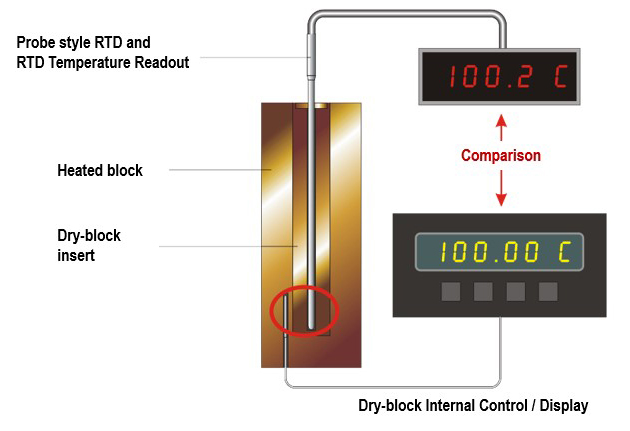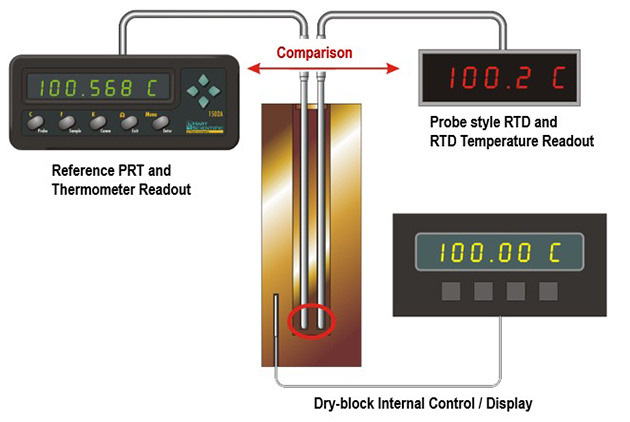- Other Fluke companies:
- Fluke
- Fluke Biomedical
- Fluke Networks
- Fluke Process Instruments
How to do a temperature sensor comparison calibration
Here’s how to do a simple comparison calibration of a probe-style RTD at one temperature point using temperature sensor calibration equipment, a dry-block calibrator in this case. Fully insert the probe RTD into one of the dry-block insert holes and connect the cable to an RTD temperature readout. Ramp the dry block to 100 ºC (212 ºF). When the dry-block display shows a stable 100 ºC, record the value of the RTD temperature readout. You now have one data point to compare the RTD temperature on the readout to the dry-block calibrator which is being used as a stable measurement reference standard. A typical sensor calibration would be done at several temperature points that span the working range of the sensor when used in a production environment

For a higher accuracy calibration, a reference PRT connected to a thermometer readout could be inserted into another of the dry-block insert holes. In this case, the PRT which has a higher accuracy than the internal display of the dry-block calibrator is used as the reference standard and compared to the reading of the RTD temperature readout.

See related products
Platinum Resistance Thermometers (PRTs)
Keep learning
Platinum Resistance Thermometers (PRT) (App Note)
Selecting a dry-block calibrator (Blog)
How to Calibrate an RTD or Platinum Resistance Thermometer (PRT) (App Note)
Annealing a PRT: Why, When and How (Webinar)
Get Help
Speak with a calibration product expert about your probe and equipment needs
- Login to post comments
- Printer-friendly version »
- Home
- Products
- New Products
- Electrical Calibration
- RF Calibration
- Data Acquisition and Test Equipment
- Temperature Calibration
- Humidity Calibration
- Pressure Calibration
- Flow Calibration
- Process Calibration Tools
- Calibration Software
- Service and Support
- All Calibration Instruments
- Handheld Test Tools
- Purchase Info
- News
- Training and Events
- Literature and Education
- Service and Support
- About Us


